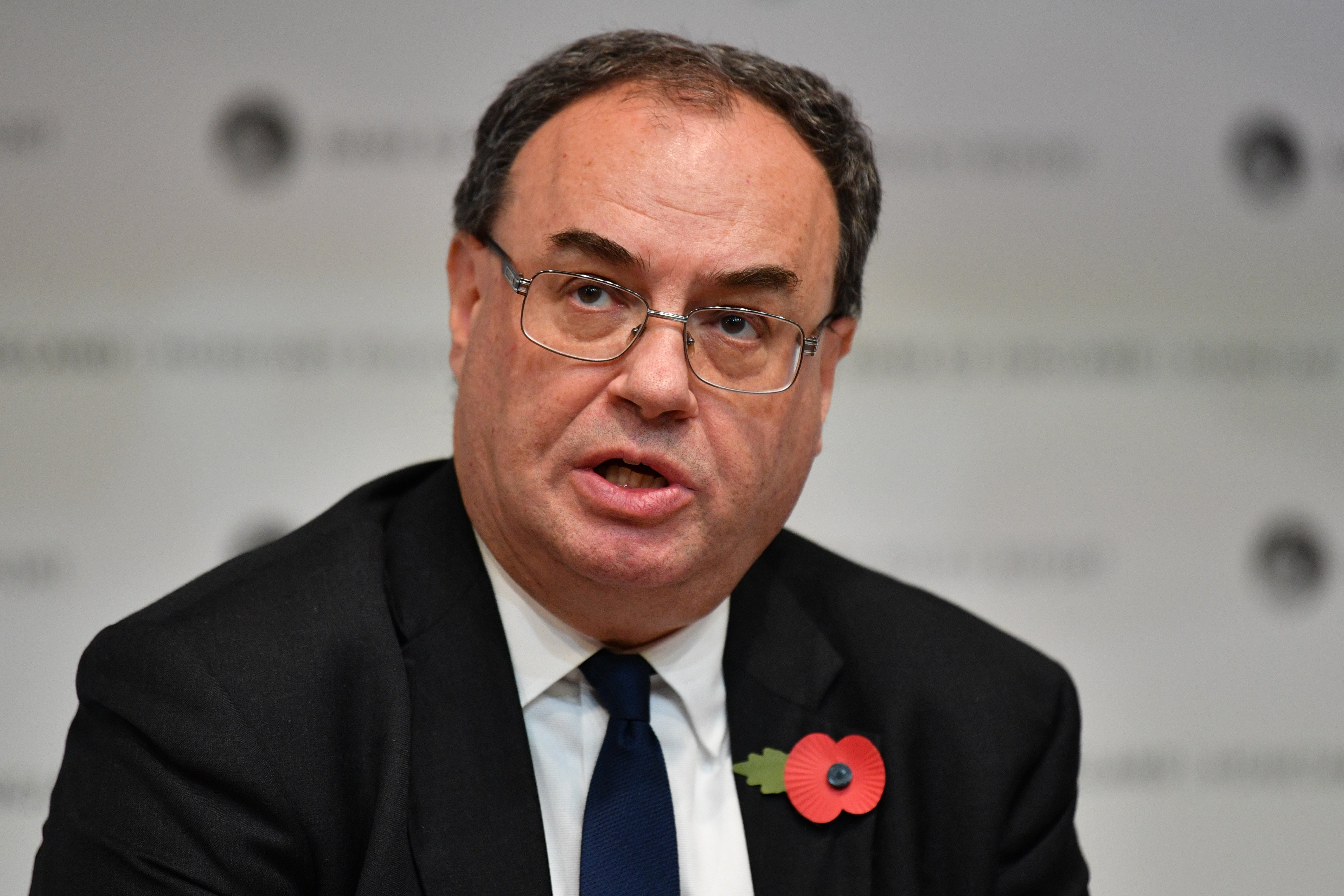Cost-of-living squeeze to last for two years, warns Bank of England governor
Andrew Bailey warns of ‘difficult period ahead’ as people’s real wages continue to fall

The cost-of-living squeeze affecting UK households will continue for two years, the governor of the Bank of England has warned.
Andrew Bailey said inflation was not expected to return to normal levels until early 2024, with pay rise struggling to keep up.
Mr Bailey told BBC Radio’s Today programme: “It is going to be a difficult period ahead, I readily admit, because we all get we are already seeing and we’re going to see a reduction in real income.
“Based on what we see today, I would expect that, so we’re going to start coming out of it in 2023, and two years from now we expect we’ll be back on to a more stable – certainly inflation – back to a more stable position.”
The Bank forecasts that inflation will hit 7.25 per cent in April.
With workers’ pay rises averaging below 5 per cent and taxes set to rise in April too, it means households here face the biggest fall in their real incomes since comparable records began 30 years ago.
Mr Bailey, who is paid around £500,000 per year, reiterated his assertion that workers should show “restraint” when asking for salary increases.
The governor encouraged companies not to give staff big pay rises, warning it could lead to a spiral of higher prices being followed by higher wages, pushing inflation higher.
He said: “We think that some of the bottlenecks around the world that have been causing disruption to the supply of goods and have been pushing prices up are starting to ease.
“We think there are good reasons to believe energy prices will start to ease, not least because they are somewhat seasonal. There are risks on both sides of that. It’s possible that energy prices will come down more rapidly because they’re so elevated at the moment.”
But the prime minister’s spokesperson said pay restraint was not something Boris Johnson is calling for.
“We obviously want a high-growth economy and we want people’s wages to increase,” he said. “We recognise the challenge of the economic picture which Andrew Bailey set out but it’s not up for the government to set wages or advise the strategic direction or management of private companies.”
The Bank increased its benchmark interest rate from 0.25 per cent to 0.5 per cent on Thursday, a move it hopes will reduce inflation by making borrowing more expensive.
Among those first to be impacted will be mortgage borrowers on tracker and variable rate deals who will see their payments rise.
Critics of the Bank’s decision have questioned whether increasing rates will do anything to combat the causes of rising prices.
The primary driver of inflation in the past year has been higher energy prices, caused by constrained supply at a time of surging demand as the world emerges from the worst of the pandemic.

Join our commenting forum
Join thought-provoking conversations, follow other Independent readers and see their replies
Comments